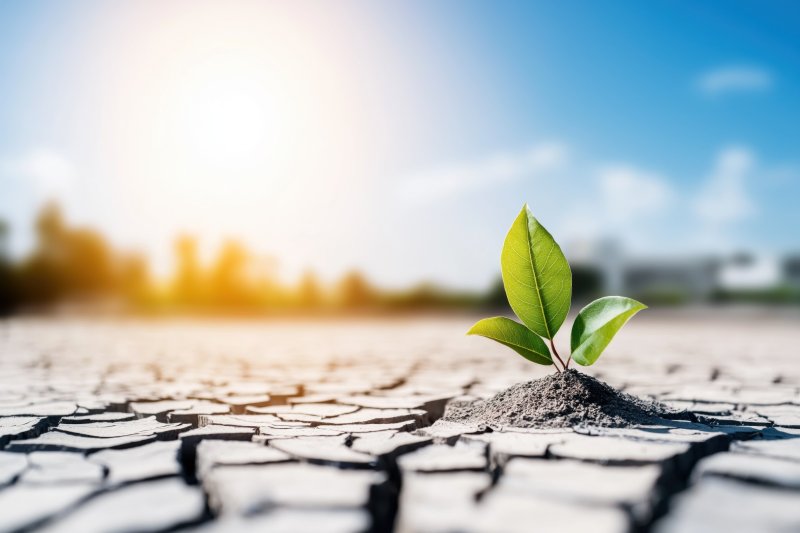Prioritizing Climate Adaptation; Urgent Call for Albania
Albania stands at a critical juncture in tackling the global climate crisis. It ranks highest among European countries for exposure and vulnerability to natural hazards and extreme weather events. These events, growing in frequency and intensity, pose serious threats to communities and ecosystems.
Albania faces escalating extreme weather, including floods, droughts, and heat waves. From 1997 to 2017, floods in regions like Shkodra, Tirana, Vlora, and Fier caused USD 218 million in damage and affected over 550,000 people. The European Environment Agency also ranks Albania as having Europe’s highest drought severity per decade, with heat waves adding further strain. Rising sea levels and heavier rains threaten coastal areas, particularly the southern coastline, where erosion rates reach 20–50 cm/year. For example, the Narta coast loses 2.0–3.0 hectares annually.
Deon Gjoni, UNDP Albania weather kid (see the www.undp.weatherkids.org campaign), says: “Climate change is making our world hotter, and it’s tough on people like my grandparents. Floods and droughts are increasing too. Kids like me can save water and energy, but we need adults to lead in protecting our planet.”
Rural communities, reliant on agriculture and natural resources, are hit hardest, especially women and marginalized groups. Climate change worsens gender inequalities—extreme weather events are linked to higher rates of domestic violence in affected areas, compounding discrimination against women. The UNICEF’s Climate Landscape Analysis for Children in Albania highlights a critical gap: the country’s climate and environmental policies often fail to address the specific rights and needs of children. Floods, heatwaves, poor air quality, and droughts strain child health systems, disrupt education, and deepen inequality, underscoring the need for child-sensitive climate strategies.
Albania is taking action to address these challenges. In 2021, the country strengthened its climate pledges (Nationally Determined Contributions, or NDCs) under the Paris Agreement, committing to cut CO2 emissions by 20.9% by 2030 from a 2016 baseline. This ambitious target supports global efforts, but with rising temperatures, building resilience through adaptation is equally vital.
The National Adaptation Plan (NAP), developed with UNDP support, provides a strategic roadmap based on a detailed Climate Risk Assessment. It identifies agriculture, tourism, and urban development as the most vulnerable sectors, requiring targeted measures. Eight local governments have prepared adaptation plans with priority actions, ensuring responses address the distinct impacts on men and women, particularly rural women. Strategic investments and urgent implementation are now essential.
Building on these national efforts, Albania must integrate climate considerations into sectoral strategies and develop concrete adaptation investment plans. High-risk projects should be avoided, and strengthening data systems to track carbon reduction progress is crucial. Preparing key sectors for regional measures, like carbon pricing and alignment with the EU’s Emissions Trading System (a market-based approach to reducing emissions), will enhance future resilience. Moreover, mobilizing law enforcement to prevent and combat environmental crimes—such as illegal logging, waste trafficking, and pollution—is critical. These crimes undermine ecosystems that serve as natural carbon sinks, weakening resilience and hindering effective climate action.
United Nations agencies in Albania are collaborating to support these goals. UNDP aids mitigation, adaptation, and water management, including national climate reports. UNEP assesses ecosystem impacts and supports climate-proofing in tourism and urban areas. UNESCO focuses on sustainable groundwater management, while WHO strengthens health systems for emergencies. UNICEF advocates for climate policies and investments that fully reflect the needs of children and youth, while integrating green skills and climate literacy into the education system, supporting community-based solutions to reduce exposure to pollution, heatwaves, and water insecurity and engaging youth in finding local solutions to reduce effects of climate change [8]. UNODC works globally to strengthen legal measures to combat environmental crimes like illegal logging and pollution, protecting vital ecosystems and could support Albania’s climate resilience. UNFPA addresses climate links to gender-based violence and maternal health. FAO advances sustainable agriculture, ILO enhances labor aspects of climate action, and UN Women supports gender mainstreaming across all climate policies. Recently, UNEP and UNOPS have joined forces to manage the safe disposal of 243 tons of Polychlorinated Biphenyl (PCB) waste to protect ecosystems and public health in Albania.
To conclude: Albania’s climate challenges are urgent, but solutions are within reach. Inaction carries high costs, while building resilience offers immense benefits. The UN family in Albania stands ready to support this journey. For future generations, it’s time to act with urgency, resilience, and determination.
*The full Op-Ed with references to sources quoted, can be found on UN Albania website: https://albania.un.org/en/295646-op-ed-urgent-call-albania-prioritize-climate-adaptation-amid-growing-risks













